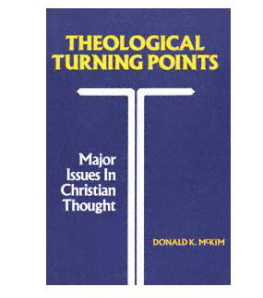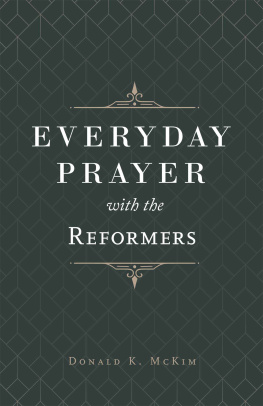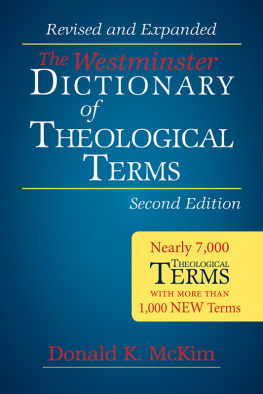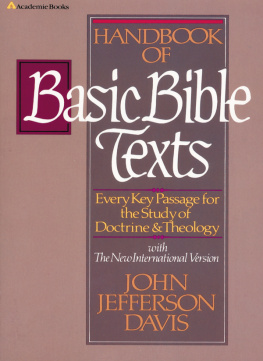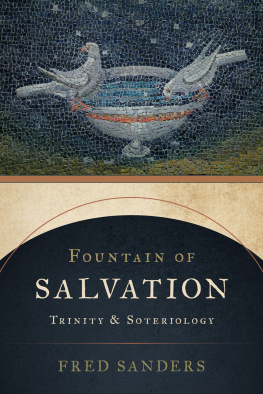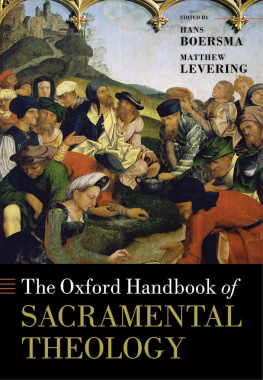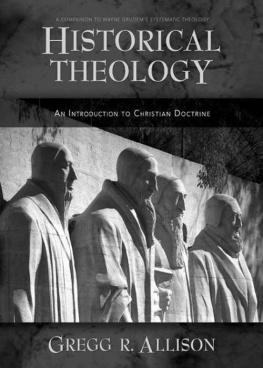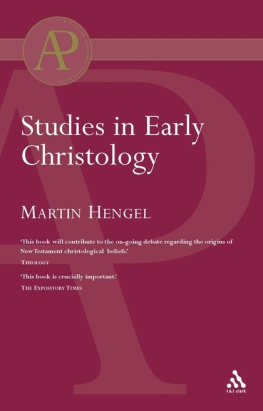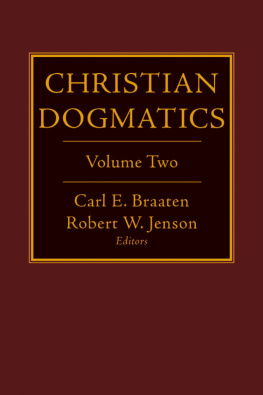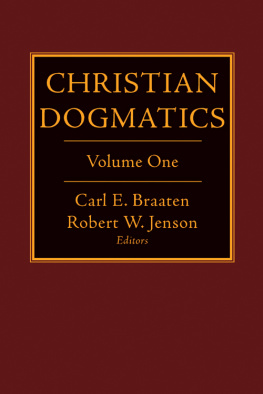*
title : Theological Turning Points : Major Issues in Christian Thought
author : McKim, Donald K.
publisher : Westminster John Knox Press
isbn10 | asin : 080420702X
print isbn13 : 9780804207027
ebook isbn13 : 9780585288802
language : English
subject Theology, DoctrinalHistory.
publication date : 1988
lcc : BT21.2.M19 1988eb
ddc : 230/.09
subject : Theology, DoctrinalHistory.
Theological Turning Points
Major Issues in Christian Thought
Donald K. Mckim
Unless otherwise indicated Scripture quotations are from the Revised Standard Version of the Holy Bible, copyright 1946, 1952 and 1971, 1973 by the Division of Christian Education, National Council of the Churches of Christ in the U.S.A. and used by permission.
Library of Congress Cataloging-in-Publication Data
McKim, Donald K.
Theological turning points.
Bibliography: p.
1. Theology, Doctrinal-History. I. Title.
BT21.M19 1988 230.09 88-45432
ISBN 0-8042-0702-X
copyright John Knox Press, 1988
10 9 8 7 6
Printed in the United States of America
John Knox Press
Atlanta, Georgia 30365
Preface
Nearly twenty years ago I purchased a small book by R. A. Finlayson entitled The Story of Theology (London: Tyndale, 1963). Six of its chapters were lectures for lay people on the history of Christian doctrine. Through this book I first became aware of an inner logic in the development of doctrine. Following James Orrs major work, The Progress of Dogma (1901), Finlayson spoke of the historical development of Christian doctrine, which Orr says follows a logical order that renders it scientific as well as historical. Finlaysons chapters showed me how the church had progressed first through the doctrine of the Trinity, then Christology, then the doctrine of humanity, and so on, each solidifying some aspect of Christian faith, then raising new questions and issues for later generations. Further studies acquainted me with a number of the important controversies in the history of Christian thought. These were turning points in the development of Christian doctrine that helped put subsequent discussions on new footings.
In the present volume I attempt to give an account of some of these turning points and to trace the development of major Christian doctrines in their formative stages. As such, the work is both historical and systematic in approach. The book is written for three groups of people. College and theological students will find it a useful guide in capsulizing what they read in other books and study in their classes. I have tried to provide ample documentation in the notes, so that topics can be explored further. Though the secondary literature is extensive, I have made direct quotations in the text only from primary sources, that is, from the theologians and documents being studied. Unfortunately it has not been possible to alter all these citations to reflect more inclusive language.
Second, lay people in churches will find this book a helpful way to gain a broad picture of some of the significant theological issues the church has faced and some of the important formulations that have shaped our understanding of these issues. I feel keenly the need for a one-volume work that introduces the history of Christian theology to people with little or no theological background. My purpose in working on these doctrines is to focus attention on how they developed and to make it easier to study specific issues. The book can be read most naturally chapter by chapter as each traces doctrinal development. Or it can be approached by historical periods or by theologians, in order to get a picture of what the early church or a particular theologian said on the doctrine being covered.
Third, I hope that pastors as well will turn to this book and that a few apt quotations may find their way into Sunday sermons. Beyond this I hope the book will reawaken interest perhaps submerged since seminary in how the church has done its theology, and that in teaching and preaching this may be a convenient place to turn to find out who has said what and to be stimulated to think about the implications and ongoing relevance of Christian doctrine.
Numerous people and resources have contributed to the preparation of this book. Those who write on the history of Christian thought find the works of scholars like J. N. D. Kelly, Jaroslav Pelikan, Reinhold Seeberg, Justo Gonzlez, Otto Heick, and Bernhard Lohse indispensable. Behind them all stands the great historian of dogma, Adolf von Harnack, who, though not cited directly, has added immensely to theological understanding.
Most of all, however, I am grateful to the teachers who helped me learn and love the history of Christian doctrine. Dr. Jack B. Rogers, Dr. Robert S. Paul, and Dr. Arthur C. Cochrane have all been close friends and superb teachers. And the late Dr. Ford Lewis Battles, an incomparable historian of the church and its theology, left a lasting imprint upon me from our studies together at Pittsburgh Seminary.
Also to be thanked are LindaJo, Stephen, and Karl McKimthe teachers who show me daily what Christian doctrine and life together really mean.
This book is dedicated to the memory of my friend and former pastor, the Reverend John E. Karnes, who introduced me to Christian theology. Through preaching, conversation, and caring he helped me develop a love for the history of Christian thought. For him I will always be deeply grateful.
DONALD K. MCKIM
To the memory of John E. Karnes preacher, teacher, and friend with gratitude and appreciation for introducing me to the joys of Christian doctrine and the Christian life
Introduction
The following chapters focus on some of the major theological issues the church has faced through the centuries. They are studies in historical theology: the development of Christian doctrine and the history of Christian thought. The eight so-called controversies presented here are chosen because they represent major sources of contention among Christian theologians. What follows is obviously not a complete history even of the doctrines considered. It is, rather, a basic discussion at times somewhat narrowly focused of those areas where the church has considered a variety of viewpoints.
The key rubric used in the controversies is turning point. At some junctures turning points have been quite sharp: for example, when Athanasius countered Arius or Augustine engaged Pelagius. Yet in a broader sense, as doctrines have taken shape in the church, the view of each theologian is a turning point in itself. As new proposals are made, older ones are discarded, modified, or reemphasized in a different context. Each new formulation of a theological issue introduces new questions and concerns, and perhaps brings new conclusions. Each proposal is thus a new turning point. The history of Christian doctrine involves change and development, as the church studies, dialogues, debates, and perhaps at some points by means of a church council declares a certain understanding to be normative or binding. In other instances the church has issued no official pronouncement but lived instead with multiple theological options.
The present work concentrates on the development of doctrine in the early church period. These were the centuries in which the most fundamental and crucial understandings developed as the churchs theological foundation. Each chapter begins with the biblical basis of the issue and tracks the development of the doctrine or at times of one or two aspects of the doctrine through the early centuries and then (with varying amounts of detail) through the Middle Ages to the Reformation and Counter-Reformation. This has led to greater weight on the earlier period and in some instances to a definite slighting of other important emerging views.
Next page
